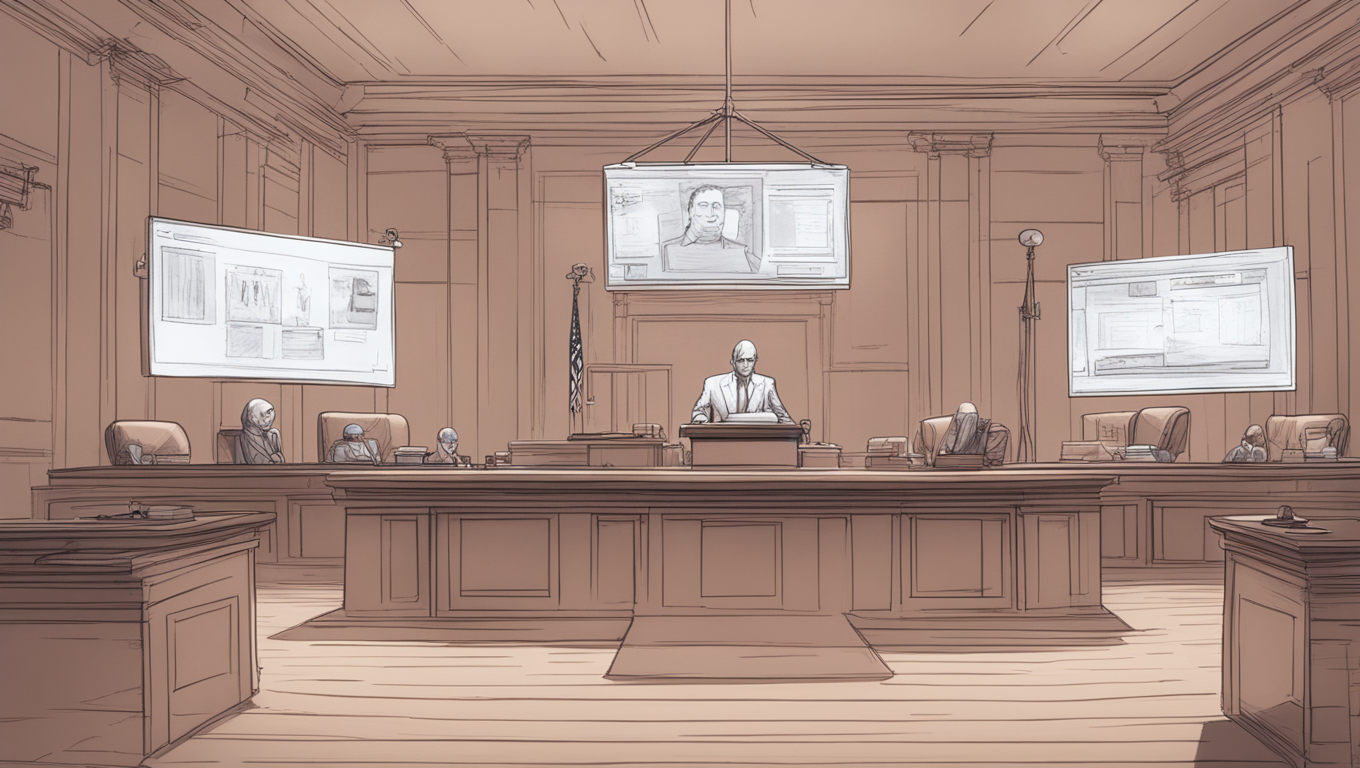Defendants in court hearings may be turning to artificial intelligence (AI) to help them receive lighter sentences, raising concerns about the use of AI apps in the justice system. The Magistrates' Association has warned that people facing criminal proceedings through the Single Justice Procedure (SJP) are utilizing AI tools like ChatGPT to argue their case and obtain more favorable outcomes. The SJP, which was introduced in 2015, allows magistrates to issue convictions and sentences based solely on written evidence. However, there are growing worries that defendants may be relying on incorrect information and making arguments based on US laws instead of English laws.
The flaws in the SJP were exposed by an investigation by the Evening Standard, which highlighted injustices faced by sick pensioners and individuals with mental health conditions. Lord Chancellor Alex Chalk KC has already acknowledged the need for reform in the wake of this investigation. The SJP has faced criticism for its lack of transparency and scrutiny as court hearings are held behind closed doors.
The Magistrates' Association plans to provide additional training for justices of the peace (JPs) across the country to address the issue of AI usage in court. Mark Beattie JP, national chair of the association, expressed his surprise at the swift emergence of AI in the justice system and highlighted the need for guidance and awareness among magistrates. The association will be organizing a webinar on AI and the justice system this year.
Magistrates sitting in SJP courts have noticed a pattern of similar responses from defendants, leading the association to investigate the use of AI tools like ChatGPT. The responses from ChatGPT aligned with those seen in actual cases, indicating the impact of AI on the justice system. The association acknowledges that people might turn to AI tools for help in unfamiliar situations but warns that the information provided might be inaccurate, incomplete, and based on US law instead of English law.
Lord Chancellor Alex Chalk has addressed the issue in Parliament, signaling his openness to reform and emphasizing the importance of fairness. Following the Evening Standard’s investigation, the Magistrates' Association has proposed a 12-point plan for change. This includes allowing journalists to observe SJP hearings, providing written reasons for sentences, implementing a “public interest check” by prosecutors, offering Plain English letters to defendants, and supporting vulnerable individuals with mental health conditions throughout the process. The association also highlights the need for better training to ensure magistrates fully understand their powers and do not feel rushed into making decisions.
The Ministry of Justice is considering plans to introduce fully automated courts, enabling defendants to plead guilty online and be sentenced by a computer rather than a magistrate. There are also discussions about conducting more magistrates court hearings behind closed doors, even for cases involving serious criminal allegations.
As AI continues to evolve and permeate various aspects of society, its impact on the justice system raises significant concerns. The Magistrates' Association is committed to supporting its members through this technological shift and ensuring the fairness and accuracy of legal proceedings. It remains to be seen how the use of AI in court hearings will be regulated and how it will shape the future of the justice system.





Use the share button below if you liked it.